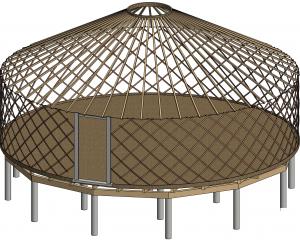The Department of Conservation has put off its big 1080 drop in Makarora until later this year, and might even cancel it.
However, it yesterday denied the decision had anything to do with a threat to contaminate milk powder with 1080 poison made public on Tuesday.
Southern South Island director of conservation services Allan Munn told the Otago Daily Times in a statement decisions about the Makarora operation ''have not been affected by the blackmail threat against 1080 use''.
The operation covering 33,016ha in the Cameron, Young, Blue, Makarora, Siberia and Wilkin valleys was first scheduled for late last year.
In November, the department announced this had been postponed until January this year, but more weather-related delays followed.
On February 20, a fleet of helicopters and 40 Doc staff were in Makarora ready to start work, but the operation was again postponed because of problems with the GPS plotting of flight paths.
Yesterday, Mr Munn said it was now ''too late in the breeding season'' for the operation to be effective in protecting birds and their young while on the nest.
''The intention at this stage is to proceed with the operation later in the year but that decision will be based on predator numbers in late April/early May.''
Mr Munn confirmed this meant the Makarora operation might not happen at all. He said 27 had been completed and Makarora was to be the last of the ''battle for our birds'' scheduled for the period November to March.
The threat made in an anonymous letter to Federated Farmers and Fonterra was to contaminate infant formula milk unless New Zealand stopped using 1080 for pest control by the end of this month. While Mr Munn denied Doc had been influenced by the threat, its decision not to proceed with the Makarora operation has effectively complied with the end of March deadline.
Other 1080 operations by organisations are still being contemplated.
The Lakes District and Central Otago News reported last October TBfree New Zealand Southern South Island programme manager Brent Rohloff saying an aerial 1080 operation targeting possums would be carried out on 5500ha of Mt Roy land, near Wanaka, ''towards the end of autumn''.
A similar operation would take place in the East Hawea area about the same time.
The ODT approached TBfree yesterday for comment and a spokesman for Operational Solutions for Primary Industries responded it would be ''business as usual'' for the 1080 programme, which was likely to be carried out in autumn or winter.
Anti-1080 campaigner Carol Sawyer told the ODT before yesterday's Doc announcement she felt the Makarora drop would not go ahead.
''Because of the high tourist numbers in the area, it would seem highly irresponsible, even for the Department of Conservation, to risk spreading 1080 over this easily accessible forest.
They are unable to keep pellets off the tracks and out of waterways during a drop and, given the present threat over infant formula, this would be likely to cause an even bigger uproar.''
The 1080 used to contaminate the milk powder has been described as ''pure'' or ''concentrated'', which appears to rule out the source being the Doc operations, where the poison had been combined with green-dyed cereal.
Wanaka police sub-area commander Senior Sergeant Allan Grindell said yesterday he had received no request to assist with the investigation into its source.











